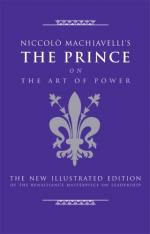|
This section contains 3,765 words (approx. 13 pages at 300 words per page) |

|
SOURCE: Saxonhouse, Arlene. “Comedy, Machiavelli's Letters, and His Imaginary Republics.” In The Comedy and Tragedy of Machiavelli, pp. 57–63. New Haven: Yale University Press, 2000.
In the following excerpted essay, Saxonhouse examines Maciavelli's attitude toward comedy.
I write about Machiavelli's comedy. But what is comedy? This is a question to which I shall keep returning throughout this essay; to begin with, though, I do not mean only the comedies as categorized by the literary critics who divide literature into comedy, tragedy, romance, and all such assorted genres. Neither is comedy only the plays written to be produced and enacted on stage, such as Machiavelli's Mandragola and Clizia, and categorized by scholars of the Renaissance as commedia erudita, which had its roots in the “antique inspiration” of Plautus, Terence, and Greek New Comedy.1 After all, Dante entitled his great poem The Divine Comedy, taking comedy away from the earthy world of...
|
This section contains 3,765 words (approx. 13 pages at 300 words per page) |

|


